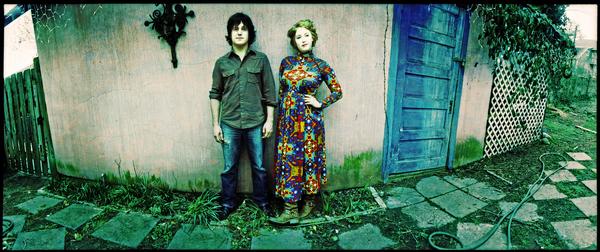There is a sense in which Adorno was right: while a classical piece may follow its compositional threads multifariously, a pop song is math and psychology. Intro + Verse + Chorus + Verse + Bridge + Chorus + Outro, mostly in 8- or 16-bar subdivisions. Chords and melodies are easily manipulated in order to evoke in us certain predictable reactions.
But is the skillful manipulation of these things not, to most of our ears, utterly satisfying? And can a pop song not, whether at three minutes or stretched nearly to seven, as in the case of "Too Far Gone," surprise and delight? And cannot guitar solos do totally bad-ass stuff which, using the magic pixie dust of improvisation, move a pop song from the realm of the regiment and structure to that of imagination and possibility?
Before we consider the structure of "Too Far Gone," let me mention another seemingly unrelated pop song I love: Weezer's "Undone (the Sweater Song)." It was said by Jim deRogatis to "have at least three distinct movements." I assume he refers to the spoken-word sections, the chorus, and the frantic crescendo of the conclusion (probably?), but whatever he meant, it's clear that the song includes several very simple sections, smushed together, which, when following one after the other, lead to something spectacular. The end of the song, in fact, I'd argue, is impossible without the parts that come before it, and its impact is also imposible without the wailing guitar solo, which breaks the song out of its incredibly simple three-chord beginnings to a a twisting bridge and a frenzied, joyous end.
So: "Too Far Gone." A simple Casio beat and a four-chord piano sequence that rewinds itself every four bars unfolds into a pre-chorus carried by a mellotron to the chorus and its three-part harmony payoff: "Am I just too far gone to be saved?" After only one minute, the song's structure has been wholly revealed, and it will essentially repeat itself for the next six. Organ and guitar are added, and at nearly three minutes in, when the pre-chorus starts to come back, one starts to feel cheated. Two short verses? A plodding vamp that simply repeats itself? No bridge?
But here is where the song, using no more than the building blocks already provided, takes a turn: the two pre-choruses are stacked one after the other, the metaphors of self-sabotage piling up till hope seems lost ("I'm shut out, I'm shut in ... I'm tied up, I'm tied down"), and then, the final twist: "You'll never be too far gone to be saved." This seems too pat, though -- too obvious, right? What's that, Christian rock band? You did a song about how things seem bad, but in the end, they're all going to be OK?
In the hands of another band, this would ring hollow. But remember this: Matt Slocum can say things with his guitar. Did you not know this? I remind you of a sentence from the liner notes to the song "Big Reconstruction" on Soul Rash, the first record by Slocum's pre-Sixpence band Love Coma:
If you listen closely, Matt's guitar speaks:
Yes -- that is what I've been trying to say each time I mention a Slocum guitar solo, and on "Too Far Gone," after the lyrical shift to hope, we get almost three more minutes of guitar work -- way more than on "Within a Room Somewhere," the band's previous guitar masterpiece. What Slocum's guitar is saying at any moment is difficult to translate, but it is always couched within the sentiment already created by the music and lyrics of the present song (how's that for totality, Adorno?). What seems to be happening here is a meandering, a twisting back, and a questioning that rises and rises as the notes of the solo climb higher.
Within the song's final minute things reach a much more fevered pitch than the lyrics could have suggested. There is a hard-won victory in that final high, repeated riff that ends around 5:58, a suggestion of existential triumph -- yet as the solo continues and the song fades out, I'm left with a distinct "I Still Haven't Found What I'm Looking For" vibe. Guitar solos are hard work, and they shape a void into something real, if only momentarily. This one gives glimpses of awful clarity, but it never ends -- it makes beautiful shapes before diving back into the fray (I accidentally typed gray there, which seems appropriate). Nash's vocal gives "Too Far Gone" an answer, but Slocum's guitar lives the questions.
PS: here is a copy of the song on YouTube, just so you can listen if you like.

No comments:
Post a Comment